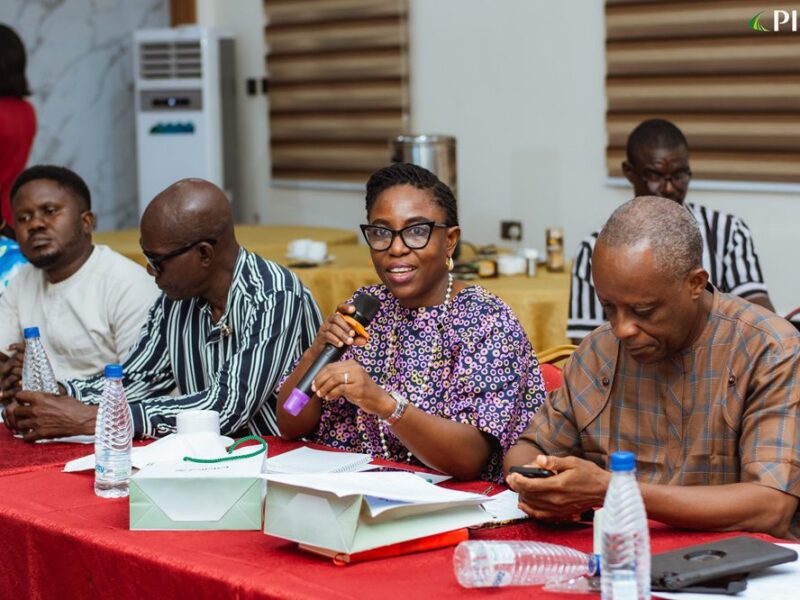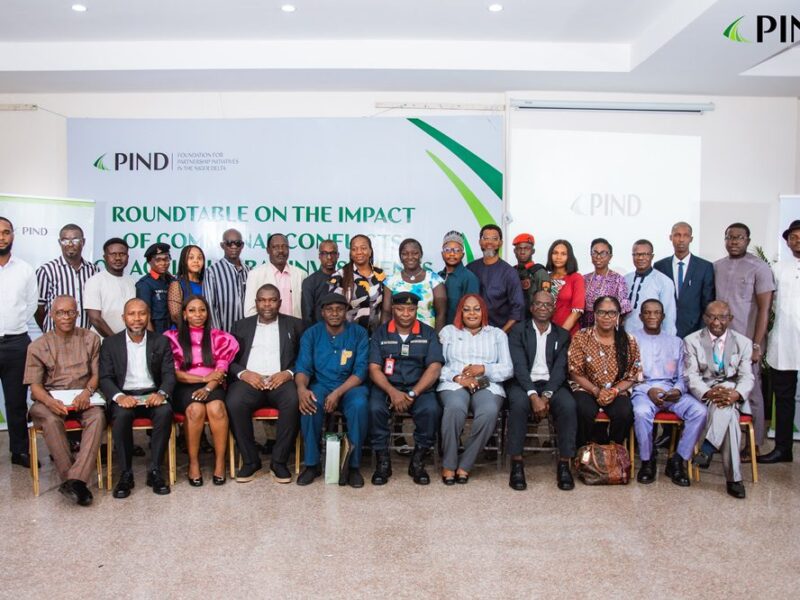The Foundation for Partnership Initiatives in the Niger Delta (PIND) has issued a clarion call for urgent and coordinated action to address the growing impact of communal conflicts on agricultural productivity and investment in the Niger Delta.
The call comes on the heels of a high-level roundtable convened by PIND on May 7, 2025, in Port Harcourt, Rivers State. Themed “The Impact of Communal Conflicts on Agricultural Investments in the Niger Delta,” the forum brought together a cross-section of stakeholders, including government officials, private sector representatives, herder and farmer groups, civil society, traditional leaders, development partners, and media professionals.
The roundtable explored findings from PIND’s recent policy brief and Peace Map analysis, which recorded over 800 deaths linked to communal conflicts between January 2014 and December 2024. The conflicts—often triggered by land disputes, governance failures, and economic inequality—have not only disrupted food systems and rural economies but have also deterred private investment in agriculture.
“There is an urgent need to confront the nexus between conflict and underdevelopment,” said Dr. David Udofia, Peacebuilding Program Manager at PIND. “Agricultural investment can only thrive in a secure and stable environment.”
Key Takeaways
Stakeholders at the roundtable identified several critical issues:
- Land-related disputes are the most common and volatile drivers of conflict in the region.
- Inadequate policy enforcement, such as on open grazing, contributes to rising tensions.
- The proliferation of small arms and reliance on armed escorts for moving farm produce reflect deepening insecurity.
- A lack of reliable, disaggregated data hinders timely conflict response and strategic planning.
A Case for the Niger Delta Regional Peacebuilding Strategy
PIND emphasized the importance of fully implementing the Niger Delta Regional Peacebuilding Strategy (NDRPS)—a collaborative framework developed by multiple stakeholders and supported by the Federal Government. The strategy is designed to reduce land-related tensions, rebuild community trust, and create a more favorable climate for economic and agricultural development.
Recommendations from the Roundtable
Participants outlined a suite of actions to reduce the risks of conflict and safeguard investments:
- Strengthen early warning and response systems like PIND’s Peace Map;
- Promote peace impact investing to address both conflict and development needs;
- Support land reform, arms control, and open grazing policy enforcement;
- Build community capacity for peaceful dispute resolution;
- Encourage conflict-sensitive journalism through a regional media charter;
- Fast-track the implementation of the NDRPS at federal and state levels.
Moving Forward
PIND is urging the Ministry of Regional Development and Niger Delta state governments to take swift action in launching and operationalizing the NDRPS. This, the Foundation asserts, would demonstrate a firm commitment to long-term regional stability and unlock greater economic opportunities through agricultural growth.
The organization also highlighted the critical role of local communities, traditional institutions, and security agencies—particularly the Nigeria Security and Civil Defence Corps (NSCDC)—in preventing and resolving agro-related conflicts.












